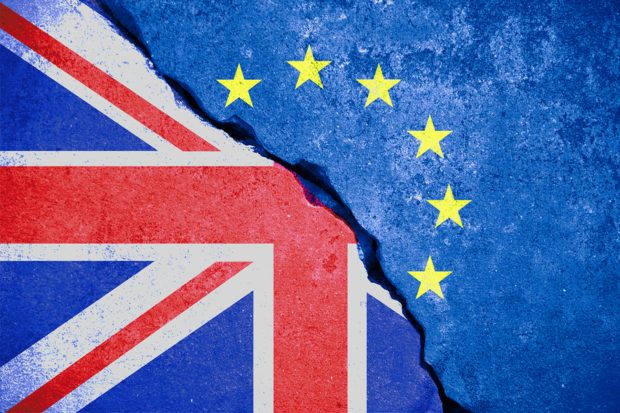The U.K. and the European Union struck a deal to unlock divorce negotiations, opening the way for talks on what businesses are keenest to nail down — the nature of the post-Brexit future.
The deal, made before dawn on Friday after rushed talks through the night, clears the path to the start of trade talks between the U.K. and its biggest commercial partner. The EU was quick to put down a marker of where it thinks those talks are headed and it’s far short of what May wants.
The agreements outlined on Friday, including a 45 billion-euro ($53 billion) divorce bill and vague promises on the sensitive issue of the Irish border, will come back onto the table if trade talks turn sour. EU officials were already warning that the second phase will be harder than the first, and time is running short before Brexit day in March 2019.
While the EU made some concessions, the U.K. did most of the running to win the prize it’s been seeking since March — the right to start discussing relations between the two when Britain parts ways with the bloc after 40 years.
Businesses have won some time, as the EU said it was prepared to move quickly to discuss the terms of a transition period that Britain wants to put in place for two years after the divorce. In reality, the working timeline of the commission is longer — a transition twice as long as what the U.K. wants — and a final accord signed and ratified by 2025, according to a person familiar with the EU’s thinking.
The Hard Part
But EU officials warned that the hardest part lay ahead. Trade deals don’t usually cover the service industries that make up about 80 percent of the U.K. economy. May has agreed to pay the bill and make other concessions in order to secure a good trade deal, but the country wants that deal to include its crucial financial services — known as the City.
The risk is that if trade talks run into trouble, political support at home for those concessions might drain away. May has already faced down one attempted coup and there’s a sense she’s one crisis away from losing the top job. Her Cabinet, fiercely divided over Brexit, has yet to have a formal discussion of the trade deal it will even seek.
Once the euroskeptics realize what kind of trade deal is on offer, their hesitant support of May’s concessions may disappear, says Eurasia’s Mij Rahman.
“The rubber will hit in the road in phase two,” he said.
The pound initially rose before erasing its gains. According to Vassilis Karamanis, a currency strategist writing for Bloomberg, it shows that while traders recognized that a crucial phase had been reached, the path ahead could be even “more frustrating and time-consuming.”
Read about why the Irish riddle will come back to haunt May and her deal
May came to Brussels with an agreement on the rights of EU citizens, the financial settlement, and a solution to keep the border between Northern Ireland and the Republic as open as it is now after Brexit.
The last turned out to be the thorniest, requiring delicate four-way talks as the Northern Irish party that holds the balance of power in London wielded a powerful veto until the last minute. The issue is far from resolved and threatens to dog the next stage of negotiations.
Arlene Foster, who heads the Northern Irish party that holds the balance of power in London, said her Democratic Unionist lawmakers could still vote down a final exit deal if they’re not happy.
“So much time has been devoted to the easier part of the task and now to negotiate a transition arrangement and the framework for our future relationship we have, de facto, less than a year,” European Council President Donald Tusk said. “We all know that breaking up is hard but breaking up and building a new relation is much harder.”
Britons will also be watching to see if talks live up to what was promised: they were told that Brexit would mean free trade deals with Europe and the rest of the world, controls on European immigration and the repatriation of regulation.
May has said she wants a deep and special partnership and a better deal than the free-trade agreement that Canada secured from the EU. But ministers will have to decide what they are willing to sacrifice in order to get what they want and the answer will vary from one faction to another within government and within the Tory Party.
For now, Canada appears to be what is on offer, a deal that took seven years to negotiate.
“I certainly think that the trade deal the United Kingdom will be looking for with the EU will be very much a Canada-plus trade deal,” Irish Foreign Minister Simon Coveney told Bloomberg Television.





















 Premium Slowdown, Inflation Factors to Lead to Higher P/C Combined Ratio: AM Best
Premium Slowdown, Inflation Factors to Lead to Higher P/C Combined Ratio: AM Best  Why Claims AI Build vs. Buy Decisions So Often Miss the Mark
Why Claims AI Build vs. Buy Decisions So Often Miss the Mark  From Skill to System: The Next Chapter in Insurance Claims Negotiation
From Skill to System: The Next Chapter in Insurance Claims Negotiation  Large Scale Cargo Ring Busted in LA, $5M Recovered
Large Scale Cargo Ring Busted in LA, $5M Recovered 








